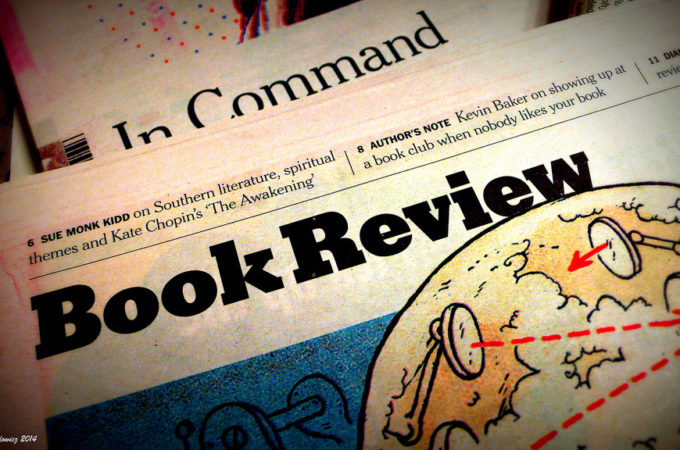Recently, a Christian brother published a “sympathetic critique” of Darrow’s book Discipling Nations. He raised issues about Disciple Nations Alliance teaching that have been noted by others from time to time. Because of that, and in the spirit of a free exchange of ideas, we offer here, in six parts, our brother’s critique and Darrow’s response. editor
First, Miller cites few biblical scholars or theologians, though he deals with theology and worldview throughout his book. The majority of those quoted are social commentators and other activists, such as himself. On the research portal, EBSCOhost, I found only one review of his book (partially negative). He does not appear to have written any peer-reviewed articles, except a brief expose about his book in 1997 in the International Journal of Frontier Missions. This is important. His entire project is based upon a biblical-theological hermeneutic that is subject to criticism (below). In other words, he is clearly a “how and when” thinker, but has not provided and in depth “what and why” biblical analysis to justify his program.
~
Again, Richard, thank you for your generous and positive reflection in the preamble to your first blog.
You went on to identify five weaknesses and one “serious conceptual flaw” in the book. Actually there are probably even more weaknesses than you have identified! But I would like to respond to your critique. My sense is that we will find considerable agreement as we dialogue, and at the same time identify issues that may need further discussion.

The first weakness you have articulated is that I cite “few biblical scholars or theologians.” This is true! In academic circles, this would be a critical flaw. If I were pursuing a PhD, this would be an imperative.
But, as I mentioned in my first response, I am not a theologian. I am a social activist who seeks to think theologically about my work. Neither am I a scholar, nor have I ever pretended to be. If you judge me by my theological scholarship you will find me lacking.
My time at L’Abri
When I was in my twenties, my wife and I had the opportunity to live, study and work under Francis Schaeffer at L’Abri Fellowship in Switzerland for three years. At the time, I had completed a year of seminary and had taken a year off to travel. I ended up spending the three years at L’Abri. I learned more in two months as a student at L’Abri than in the previous nine months in seminary. When the Lord provided the opportunity for my wife and I to stay and work at L’Abri, we took it.
In the environment of L’Abri I found a radical way to learn. I came to understand that education was more important than schooling. I realized that I needed to develop the discipline of life-long learning. (My post at Darrow Miller and Friends, School vs Education, develops this premise.)
 At L’Abri I acquired the skill of helping common folks like myself better understand what Schaeffer and other thinkers were saying. I did not have an intellect like Schaeffer, nor the intelligence and scholarship of L’Abri friends like Os Guinness, Charles Thaxton or Nancy Pearcey. But I could make their teaching and writing accessible to the common man.
At L’Abri I acquired the skill of helping common folks like myself better understand what Schaeffer and other thinkers were saying. I did not have an intellect like Schaeffer, nor the intelligence and scholarship of L’Abri friends like Os Guinness, Charles Thaxton or Nancy Pearcey. But I could make their teaching and writing accessible to the common man.
There is a distinction between “top,” “pop,” and “slop.” Schaeffer, Guinness, Thaxton, Pearcey, and likely yourself, are in the top category. I have sought to occupy the ground of pop – the popularizer. In this place I have blossomed. I trust that my writing and speaking is not in the slop category.
Many reviews
While it is true that I have had few academic reviews, I have had many non-academic reviews. These have come from peers, working professionals in the relief and development community. Those reviews have been mixed, partly because the positions I take often run counter to the philosophy behind industry practices. But over the years, the things I have written about in Discipling Nations have begun to impact the industry.
Other reviews have come from young leaders looking for solutions to the poverty and corruption that enslave their countries. In addition, missionaries, pastors of all stripes, and Bible school and seminary leaders have responded and given input on the book. These leaders have used our materials in books in seminary classes, in staff training for partnering organizations, and in shaping their own ministries among the poor and disenfranchised. Churches have developed customized applications that have begun to bring transformation to their churches and communities, and, in some cases, their cities.
I recognize these do not comprise the kind of rigorous academic reviews you mentioned. But hopefully these at least indicate that the ideas have been reviewed and applied by a variety of Christians ranging from pastors to seminary and university professors and missions and relief and development leaders.
Discipling Nations has been translated into 13 languages by those who have found it helpful. For the most part, the translations were done as gifts of love because of the perceived importance of the message for their nation.
Supportive scholars
Some scholars have been supportive, especially Dr. Wayne Grudem of Phoenix Seminary, Dr. Brian Fikkert of the Chalmers Center at Covenant College, Dr. Nancy Pearcey, Scholar in Residence at Houston Baptist University, and Dr. Tetsunao Yamamori, professor and missiologist.
You suggest that I am “clearly a ‘how and when’ thinker” who has “not provided an in depth ‘what and why’ biblical analysis to justify his program.”
Being at heart a social activist, I am a doer. Yet those in the relief and development community have criticized me for being too philosophical and theological!
 As a university student, I traveled to Mexico City and lived in an orphanage for six weeks. God broke my heart over the plight of the poor. When I began to work for an international NGO I realized a need for practical Bible-based solutions to the problem of poverty. Thus when I speak about worldview, I move towards the practical rather than the academic. Most people who teach on worldview emphasize the academic. At the DNA we stress the practical.
As a university student, I traveled to Mexico City and lived in an orphanage for six weeks. God broke my heart over the plight of the poor. When I began to work for an international NGO I realized a need for practical Bible-based solutions to the problem of poverty. Thus when I speak about worldview, I move towards the practical rather than the academic. Most people who teach on worldview emphasize the academic. At the DNA we stress the practical.
Similarly, my interest is in practical (applied) theology rather than systematic theology. We live in a broken world; it is truth that sets us free (John 8:31-32). People and societies are poor because they have had little teaching about the treasure found in scripture. In addition to the treasure found in the Gospel of Jesus Christ, the Bible’s practical wisdom can be applied to everyday life. The scriptures challenge cultural lies such as fatalism, or “work is a curse,” “men are superior to women,” “ignorance is a virtue.” All these lies are barriers to human flourishing. Fellow L’Abri alum, Vishal Mangalwadi, has written a profound book, The Book that Made Your World: How the Bible Created the Soul of Western Civilization.
Few Christians have been taught to connect their daily work to the coming of the kingdom of God. My book LifeWork: A Biblical Theology for What You Do Every Day, is a serious attempt to heal this flaw.
- Darrow Miller







6 Comments
Joan Purcell
March 5, 2018 - 11:53 amBro. Darrow, I love your response; it resonates with me. You have helped me to “be the Church as I do life” . While I’ve been impacted by the work of the late Francis Schaeffer ( a great deal was above my head), we need more Darrow L. Millers to practicalize our Christian faith and to provide real answers to ordinary, struggling, honest believers who want to be faithful disciples of our beloved, Lord. Thank you, Darrow.
admin
March 6, 2018 - 6:13 amJoan
Glad the dialog is helpful. Thank you for your kind note. There are several more responses in the pipe line. Please feel free to share these with your friends.
darrow
Mike
March 5, 2018 - 11:56 amthanks for taking the time to carefully and thoughtfully respond to these criticisms Darrow. Very well put. I would wonder how much practical cross-cultural experience this critic has had? how much work amongst people living in the most dire situations? It’s so easy for western ivory tower “academics” to throw such darts at folks in the trenches actually WORKING amongst the poor.
admin
March 6, 2018 - 6:22 amGood to hear from you. From what I know, my dialog partner has spent over 20 years as a missionary in both Eastern Europe and now in South America. So he has had good cross cultural experience, but may not have worked among the poor. Wonderfully, he has responded to my comments,so the dialog will continue.
Carlos Said Pires
March 6, 2018 - 5:50 amDiscipling Nations has shaped the way we have been working in some communities in Brazil . We praise the Lord for the richness of its content.
On March 24th we Will begin a seminar called ” Political transformation from a biblical worldview. ” The First class Will based on Discipling Nations .
admin
March 6, 2018 - 6:23 amCarlos, this is wonderful. Keep us posted on how this unfolds.
darrow